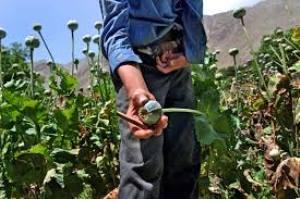Pennsylvania's medical marijuana advisory board rejects five potential qualifying conditions, it will be Psychedelic Awareness Month next month in Ann Arbor, and more.

Pennsylvania Board Rejects Adding New Qualifying Medical Conditions. The state Medical Marijuana Advisory Board on Tuesday voted to reject adding five medical conditions to the list of qualifying conditions for medical marijuana use. Those conditions were traumatic brain injury, hepatitis, Hepatitis C, chronic insomnia that isn’t responding to other treatments and major depressive disorder that isn’t responding to other treatments. The board has already approved 23 serious medical conditions for medical marijuana use, but board members were concerned the applications for traumatic brain, hepatitis, and Hepatitis C were "overly broad" and cited worries that juveniles with traumatic brain injuries could qualify for medical marijuana. With chronic insomnia and major depressive, the board concluded there was no evidence that medical marijuana would benefit patients with those conditions.
Psychedelics
Ann Arbor Declares September Will Be Psychedelic Awareness Month. The city council voted Monday to officially designate September as Entheogenic Plants and Fungi Awareness Month. The move comes nearly a year after the council voted to decriminalize a wide range of psychedelics and passed on a unanimous vote. "Practices with entheogenic plants/fungi have been considered sacred to human cultures and human relationships with nature for thousands of years," the resolution says. The measure also says the city council "advocates increased awareness and understanding of the potential benefits of entheogens for mental health, personal and spiritual growth, as well as honoring the long standing ancestral practices and relationships with these entheogens."
Foreign Policy
The US Spent Nearly $9 Billion to Suppress Afghan Opium; It Remains World's Largest Opium Producer. As the two-decade American invasion and occupation of Afghanistan comes to an end, it is worth noting that the US tried throughout the occupation to quash the country's opium crop, spending $8.9 billion over the years to do so. To no avail: The UN Office on Drugs and Crime reports that Afghanistan has accounted for more than 80% of global opium production throughout this century and that opium cultivation in the country rose from 150,000 acres in 2002 to more than 450,000 last year.
This work by StoptheDrugWar.org is licensed under Creative Commons Attribution-ShareAlike 4.0 International
Add new comment